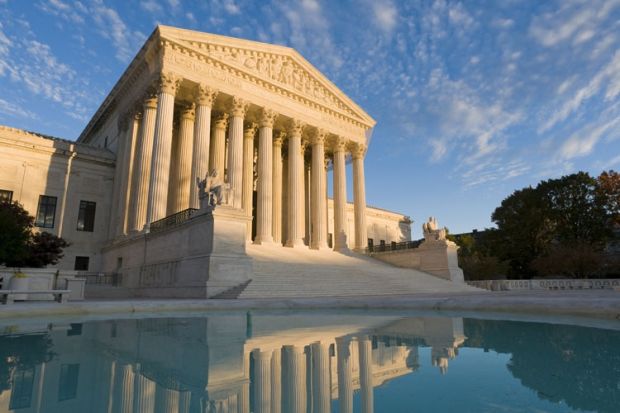The Obama administration has said that its previous guidance to colleges on affirmative action still remains valid even after the Supreme Court in June set a high constitutional bar for such policies.
Colleges can continue considering race as one of several factors in admissions decisions as long as race-neutral alternatives would not sufficiently achieve the goal of diversity, the administration said in new guidance issued jointly by the Education and Justice Departments.
“The court did not change the requirements” that were established by earlier rulings, the guidance said.
Last week’s guidance was the first clarification from the Obama administration on affirmative action since the Supreme Court ruled in Fisher v. University of Texas at Austin. In that case, the court said that programmes that account for an applicant’s race or ethnicity must be subject to a high level of constitutional scrutiny.
The ruling gave something for both advocates and critics of affirmative action to cheer. Proponents of race-conscious admissions emphasised that a majority of justices reaffirmed that diversity in higher education provides important educational and social benefits and that colleges have a compelling interest in seeking to foster such diversity on their campuses.
Critics, on the other hand, said that the case, viewed as a whole, was at most a lukewarm endorsement of certain types of affirmative action programmes. They say that in outlining a high standard for race-conscious policies, the justices set the stage for lower courts to reject more such policies.
In releasing the guidance on September, the Obama administration appeared to discourage colleges from abandoning or weakening their diversity efforts.
Martha Kanter, under secretary of education, said at an event announcing the new guidance that the administration viewed diversity as “inextricably linked” to its higher education agenda.
“The Departments of Education and Justice stand ready to support colleges and universities in pursing a racially and ethnically diverse student body in a lawful manner,” Obama administration civil rights officials wrote in a “Dear Colleague” letter. Both departments also pledged to provide “technical assistance” to institutions.
David Hawkins, director of public policy and research at the National Association for College Admission Counseling, said that the guidance is useful for colleges as they contemplate how the Fisher decision applies to their race-conscious admissions policies.
“The difficulty that our college members have had is determining how far they need to go and what kinds of analysis that a court might want to see,” he said. “Even though we know that the Justice and Education Departments aren’t going to rule on this themselves, it still provides a little bit of assurance.”
Still, he said, the biggest concern among institutions is how a court would apply the higher judicial standard outlined in Fisher to their college.
“Colleges are going to be more or less guessing at what the strict scrutiny standard means,” he said.
Roger Clegg, president of the Center for Equal Opportunity, a group opposed to colleges considering race in admissions, blogged after the guidance was released that it was flawed and would not help colleges. Mr Clegg said that the administration downplayed the way the Supreme Court appeared to be dubious of colleges’ ability to “narrowly tailor” their efforts.
“The fact is that this guidance is designed not to help schools follow the law, but to push them to adopt dubious race-based policies that the Supreme Court has warned against, and that have prompted lawsuits in the past, but that the Obama administration and its political allies stubbornly support. The whole tone of the new guidance is to offer encouragement to schools that want to engage in racial and ethnic discrimination,” Clegg wrote.
“It is as if the FBI offered eager encouragement to state and local police that wanted to engage in racial profiling without violating the law.”




